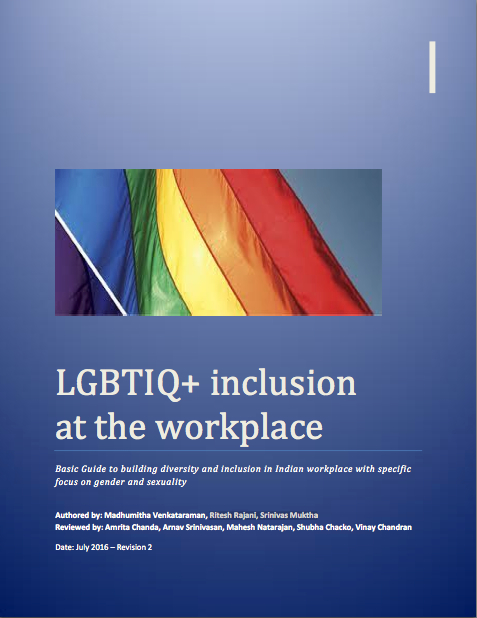Employers’ Guide to Making Indian Workplaces LGBTIQ+ inclusive launched

July 2016: A team of diversity professionals based in Bengaluru has launched a guide [click here] that Indian employers can use to help make their workplaces inclusive with respect to sexuality and gender identity.
The authors draw on their diverse experience as allies, employees, employers, educators and members of marginalised communities to condense a wealth of wisdom and practical tips into 13 pages of succinct text. They walk the uninitiated through the rationale for LGBTIQ+ inclusion, basic concepts of gender and sexuality, the cultural and legal context, characteristics of inclusive workplaces, policies and best practices, and links for further reading.
A highlight of this guide is an overview of the essential parts of Supreme Court’s NALSA ruling on transgender rights, specifically around the right of trans people to self-identify as male, female or third-gender, and non-requirement of surgery or any other medical intervention for legally recognizing transgender identity.
Also useful is the clarification that supporting LGBTQIA+ people will not place an organization in contravention of Section 377, the antiquated sodomy law that criminalizes certain behaviors, not identities or orientations. Section 377 has often been cited as a concern by Indian employers, including Indian branches of multi-national corporations, and has been used to justify inaction in the area of LGBTIQA+ inclusion. Such concerns are unfounded, as this guide makes clear.
Besides the authors’ obvious competencies in the field, the guide has benefited from review and input by community members and development professionals, including those working in the field of counselling and psycho-social health, and those associated with Good As You, one of India’s longest-running support groups for the community. These insights have led to such vital policy recommendations as:
Extend support, counseling or mentoring benefits to ensure that they are equipped to handle LGBTIQ-specific needs. Situations that might affect the mental well-being of queer employees could be: coming to terms with their sexuality and/or gender identity, coming out to family, handling marriage pressure, relationship issues.
The guide may be downloaded here.

